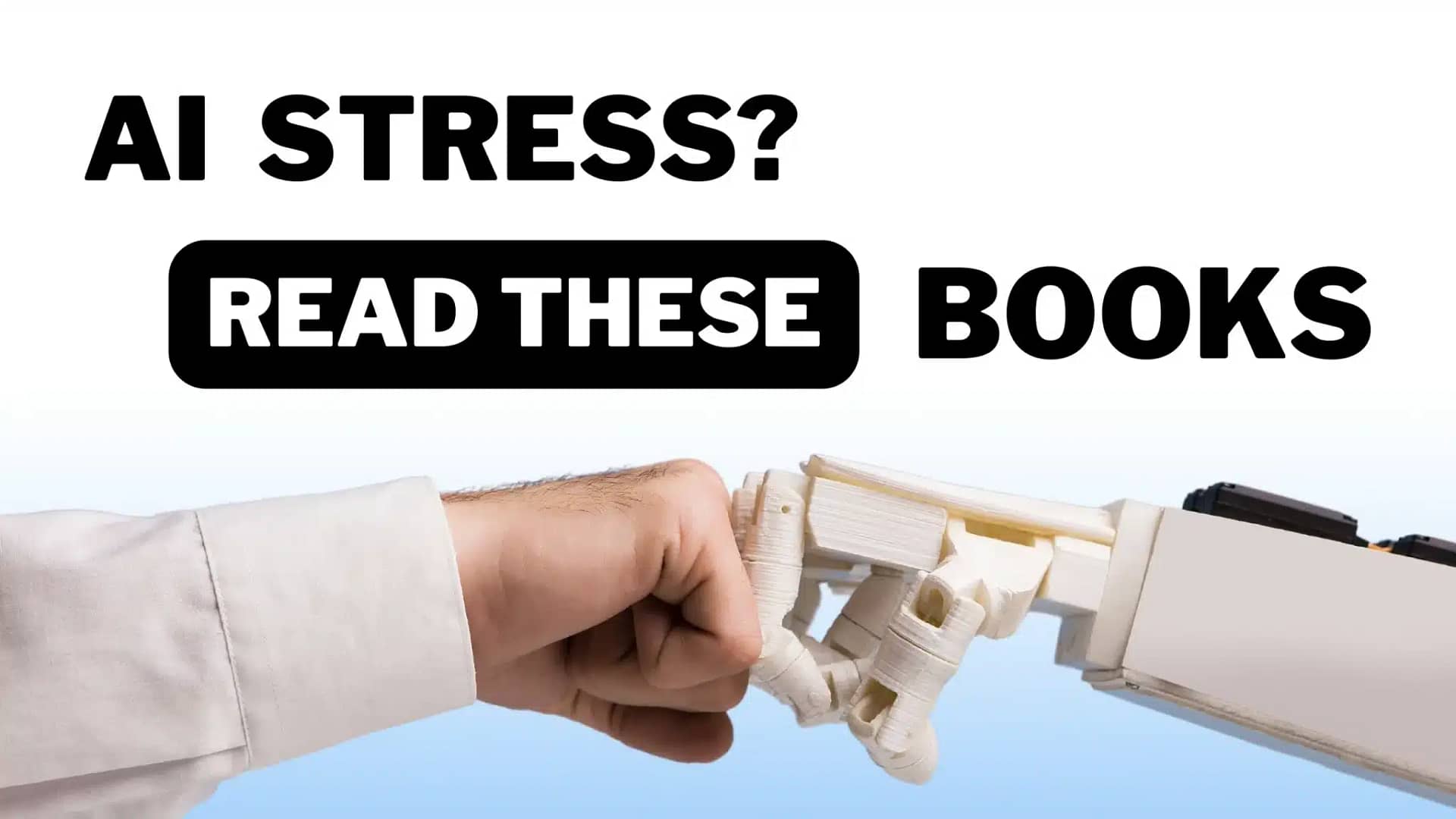AI Stress Is Real. These Books Will Help You Calm Down (2023)
Artificial intelligence (AI) is rapidly transforming our world, and with it comes a host of new challenges and opportunities. One of the biggest challenges is the potential for AI to cause stress and anxiety. (a.k.a. AI stress).
As AI becomes more sophisticated and capable, many people are worried about losing their jobs to automation, being replaced by machines, and falling behind in the technological race. Others are concerned about the potential for AI to be used for harmful purposes, such as developing autonomous weapons or creating surveillance systems that track and monitor our every move.
If you’re feeling stressed or anxious about AI, there are a number of things you can do to cope. One helpful strategy is to educate yourself about AI and its potential impact on society. By understanding the technology and its potential benefits and risks, you can feel more empowered to deal with the changes ahead. At Feisworld, we strongly believe that education is the way to go.
There are a number of excellent books available that can help you to understand AI better, manage your anxiety, and develop a more positive and productive outlook on the future. In this post we’ve collected our top picks. Let’s start!
How to deal with stress caused by AI? Best AI Stress Books in 2023
Here are a few of the best books to deal with the stress caused by AI:
1. Master of Change (Brad Stulberg)
From social disruptions like economic recessions, pandemics, and new technologies to individual disruptions like getting married, career transitions, and becoming a parent, we undergo change and transformation—both good and bad—regularly. Change is not the exception, it’s the rule. Yet we endlessly fight it, often viewing it as a threat to our stability and sense of self.
Master of Change flips this script on its head and offers a path for embracing and even growing from life’s constant instability.
2. Life 3.0: Being Human in the Age of Artificial Intelligence (Max Tegmark)
3. You Look Like a Thing and I Love You: How AI Works and Why It’s Making the World a Weirder Place (Janelle Shane)
4. Human Compatible: Artificial Intelligence and the Problem of Control (Stuart Russell)
5. Superintelligence: Paths, Dangers, Strategies (Nick Bostrom)
This book explores the potential dangers of superintelligence, which is a hypothetical type of AI that is far more intelligent than humans. Bostrom also discusses how we can avoid these dangers and ensure that AI is used for good.
But we have one advantage: we get to make the first move. Will it be possible to construct a seed Artificial Intelligence, to engineer initial conditions so as to make an intelligence explosion survivable? How could one achieve a controlled detonation?
6. The Practice of Groundedness: A Transformative Path to Success That Feeds -Not Crushes- Your Soul (Brad Stulberg)
In The Practice of Groundedness, bestselling author Brad Stulberg offers a path from which peak performance and well-being and fulfillment can emerge and prevail for a lifetime. At the heart of this model is groundedness—a practice that values presence over rote productivity, accepts that progress is nonlinear, and prioritizes long-term values and fulfillment over short-term gain.
7. The Alignment Problem: Machine Learning and Human Values (Brian Christian)
Today’s “machine-learning” systems, trained by data, are so effective that we’ve invited them to see and hear for us―and to make decisions on our behalf. But alarm bells are ringing. Recent years have seen an eruption of concern as the field of machine learning advances. When the systems we attempt to teach will not, in the end, do what we want or what we expect, ethical and potentially existential risks emerge. Researchers call this the alignment problem.
This book discusses the challenges of aligning AI with human values in more detail. Christian also provides practical advice on how to develop AI systems that are aligned with our values.








